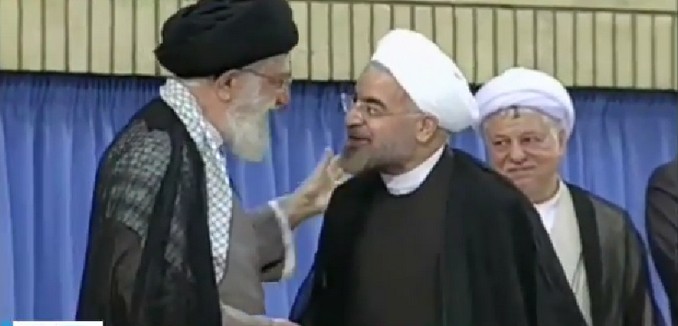An unsigned editorial in The New York Times Saturday, placed the blame of the lack of a nuclear deal squarely on Iran. The criticism is especially notable as the Times has been a very strong supporter of a nuclear deal with Iran.
The editors of Times pull no punches in the opening paragraph:
With top leaders attending the United Nations General Assembly, this is the moment to break the logjam on a comprehensive deal limiting Iran’s nuclear program. But so far there has been no real sign of movement, much less a breakthrough, despite negotiations among Secretary of State John Kerry; Iran’s foreign minister, Mohammad Javad Zarif; and Catherine Ashton, the European negotiator. The fault lies mainly with Iran.
The specific reason for the paper’s skepticism is Iran’s refusal to agree to reduce the number of its installed centrifuges.
The caveat is that the program must be structured so that Iran cannot one day make a dash to build a nuclear weapon without the world having enough warning to intervene. The big powers want to reduce Iran’s enrichment capacity so that it would take a year or more to produce enough weapons grade material for one nuclear bomb.
The Iranians have 19,000 centrifuge machines, which are central to the enrichment process; 10,200 of them are operating. While the Americans have proposed cutting the number of operating centrifuges to around 1,500 or so, the Iranians have insisted on many thousands more than the 19,000. This would give them an industrial-size capacity to produce the enriched uranium they say they need to fuel nuclear energy reactors, like one at Bushehr. But that is not cost-effective and, further, Iran does not need such capacity; Russia is providing fuel for Bushehr and can do so indefinitely.
The Institute for Science and International Security (ISIS) estimates that Iran must dismantle at least 15,000 of its installed centrifuges in order to ensure that it couldn’t quickly enrich sufficient quantities of uranium to make a nuclear bomb undetected. An alternative “face-saving” approach that would allow Iran to unplug, but not dismantle, its centrifuges has been blasted by critics as rewarding Iran’s intransigence. The proposal to unplug the centrifuges could possibly allow Iran to reconstitute its enrichment program in a matter of days.
[Photo: WochitGeneralNews / YouTube ]




